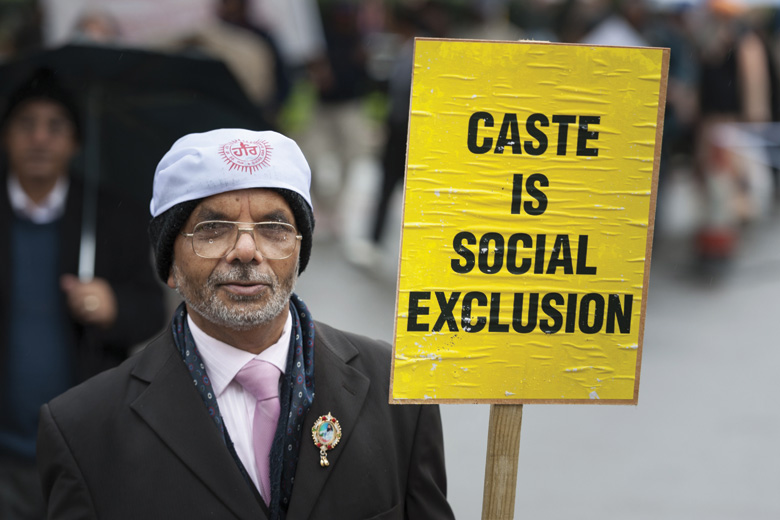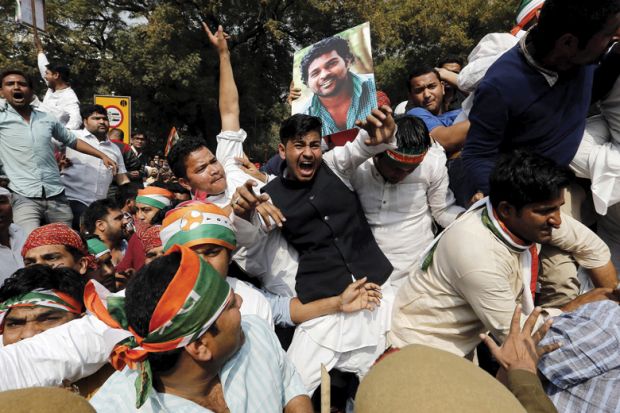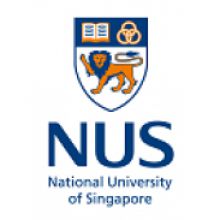Private liberal education and the future of dissent
On 15 October last year, Peter Salovey, the president of Yale University, gave a talk in Delhi titled “Liberal Arts Education in Asia”. The speech preceded the ceremonial signing of a memorandum of understanding between Yale and Ashoka University, a new Indian private liberal arts and science institution.
Salovey spoke, among other things, about Yale’s collaboration with the National University of Singapore to form Yale-NUS College, a new liberal arts college in the Southeast Asian city state. I asked him why Singapore, traditionally focused on professional and technological education, was sponsoring liberal arts education. Salovey’s answer was intriguing. He said that Singapore knows well that a messier, more pluralistic kind of democracy is not far away, and that a liberal arts education is the best way to prepare its citizens for it.
There is plenty of reason to be sceptical about Salovey’s claim, but it is highly relevant to India, where ideological conflict between groups at different ends of the political spectrum has intensified in the past couple of years. At its heart is the sustained attempt by Hindu revivalist groups – often with the support of the ruling Bharatiya Janata Party – to imagine a religiously and ethnically pure India, and the natural resistance to this ideological enterprise by various leftist and secular social and political forces.
While writers, journalists and bloggers have been sued, attacked and murdered, debates have raged about the blatantly ideological nature of influential appointments in academic administration. School and college boards have become embroiled in bitter controversies over attempts to purge curricula of “foreign elements”, and recently there was an attempt by a group led by a professor at the Indian Institute of Technology Bombay to remove the renowned Sanskritist Sheldon Pollock from the editorship of a prestigious book series on account of his failure to meet the vision of classical Indian culture as imagined by the Hindu revivalists.
Going by the events of 2015 and 2016, it is clear that some of the most deeply embattled terrains are those of the literary imagination, the writing and teaching of history, the dissemination of scholarship in the humanities and, most recently, the legitimacy of student political activism on university campuses.
In January, Rohith Vemula, a PhD student from the Dalit (formerly known as untouchable) caste, committed suicide after the University of Hyderabad suspended him over his part in an allegedly violent protest against actions of the student wing of the Hindu-revivalist party. Student groups exploded into a nationwide series of protests against the administrative repression – including removal of Vemula’s PhD stipend and expulsion from his student accommodation – that they claim drove him to kill himself. Specifically, they accused the vice-chancellor, Appa Rao Podile, of engineering Vemula’s ill-treatment. The administration, however, has refused to relent. When the students protested Podile’s return from extended leave two months after the suicide, the university orchestrated a violent crackdown against them.
In February, Kanhaiya Kumar, the elected president of the students’ union at Jawaharlal Nehru University (JNU) in New Delhi and a member of the student wing of the Communist Party of India, was arrested at a campus event for allegedly shouting anti-India slogans at a protest against the hanging of Afzal Guru, a Kashmiri activist convicted of playing a role in the 2001 attack on the Indian Parliament. After being released on bail, Kumar returned to campus and gave an electrifying speech about poverty, caste and, most movingly, what it means to seek freedom within the nation rather than freedom from it. This inflamed passion at both ends of the political spectrum and marked Kumar out to opponents of Hindu revivalism as a possible future political leader, even though the university has subsequently taken disciplinary action against him and two other student leaders arrested at the same time, Umar Khalid and Anirban Bhattacharya.
It is significant that, in a nation also known for prioritising education in science, technology, engineering and mathematics, Kumar is a doctoral student in African studies. Vemula changed his research focus from the natural to the social sciences in 2011. Khalid and Bhattacharya are both PhD students in history.
While STEM education has long been seen in India as the perfect union of personal aspiration for upward mobility and the national dream of development, the 21st century has revealed that crucial aspects of the nation’s economic future and political conscience depend on how it educates its youth in the liberal arts and social sciences. Ashoka University is not a one-off. Realising that most of India’s public universities offer an outdated model of training, designed to serve the needs of a long-extinct colonial bureaucracy, a number of private universities have recently launched innovative liberal arts programmes, often with significant endowments and prominent academic faculty drawn from around the world.
It is important to note that some of these programmes complement existing curricula focused on professional development. In the Delhi-National Capital Region, for instance, Shiv Nadar University has instituted a strong liberal arts curriculum alongside its core engineering programme, while O. P. Jindal University has done the same to enrich its central mission to train legal professionals. This is because many business and corporate leaders in India are concerned not so much with graduates’ ability to negotiate pluralist democracy as their ability to solve problems and understand human behaviour.
Nevertheless, the bitter and bloody struggle that is unfolding between India’s political Right and Left is intimately connected to the defining concerns of the liberal arts: freedom of literary expression, the curricular construction of history, the dissemination of Indian literary and philosophical classics and arguments about citizenship and political consciousness on its university campuses.
The emergence of elite private colleges promises to change the prevailing Nehruvian socialism of Indian post-secondary studies by introducing significant alternatives to state-sponsored education. The critical question is whether such institutions will turn into exclusive bastions of wealth, power and privilege, as has happened in the US, as well as with Indian secondary education, where exclusive private schools have been established to supplement the essentially failed public system.
If this happens, they will be failing the nation at a crucial time. Unlike Singapore, India is already a messy democracy; perhaps the messiest there is. What it needs is a citizenship that is committed to its staying that way, while also being able to confidently negotiate the noisy echo chamber of dissent. We will not have to wait long before we see how accurate Salovey is about the critical relationship between Asia’s renewed focus on liberal education and its commitment to democracy.
Saikat Majumdar is an assistant professor of English at Stanford University. He is the author of three books, most recently a monograph, Prose of the World: Modernism and the Banality of Empire (2013), and a novel, The Firebird (2015).

JNU incidents and the need to rethink India studies
Following the protests, suspensions and arrests that took place at New Delhi’s Jawaharlal Nehru University (JNU) in February, an international group of academics proclaimed their solidarity with the JNU protesters and criticised the actions of the university’s administration and the police.
I wrote an article in the Indian press arguing that the academics risked providing ideological justification to terrorism. The JNU protesters, let’s recall, were sloganeering in favour of a convicted and executed terrorist who planned the attack in 2001 on the Indian Parliament. Among other things, I pointed out that academics would never dream of lending their support to students campaigning in favour of the murderers of British soldier Lee Rigby by Islamic extremists on the streets of London. So why did they feel able to express solidarity with the planner of an atrocity designed to wipe out India’s entire political class?
A recent survey indicates that a large majority of the Indian public – including in Delhi, where the party of national government, the BJP, does not hold power – support the authorities’ actions at JNU. Despite this, the events appear to have contributed to a not insignificant drop in applications to study at JNU, according to The Times of India. Word has got out among the savvy consumers of Indian higher education that JNU graduates may not easily find employment because the institution is now popularly seen as cultivating radical student activism at the expense of providing transferable skills in the employment sector.
The incidents and the reactions to them provide an opportunity to reflect on how academics have become used to certain ways of seeing and talking about India. In response to my article, I was accused by some of Islamophobia and of supporting the BJP and its repression. This is symptomatic of a narrowing of our ability to legitimately speak about India – for which academics bear much of the responsibility.
It is partly down to the fact that the study of India is trapped within a framework going back to the early Protestant theological polemics against India’s false religion, oppressive caste system and tyrannical government. As S. N. Balagangadhara and Jakob de Roover of Ghent University have explained, this distorted normative framework, constructed by the theological and colonial historiography of India, affects even secularised understandings of India to this day. Events are typically viewed by academics – both within India and more widely – through the lens of caste oppression and religious conflict. Work that does not focus on religious communalism and caste oppression is likely to get short shrift, while thinking about Indian traditions as viable alternatives to the question of how humans should live is not on the agenda. A brief survey of what doctoral theses and books on India are written should verify all that.
This legacy of orientalism was recrystallised in the context of Cold War-era area studies, specifically in the domain of contemporary South Asian studies. The projection of “soft power” by the US, in areas such as research funding, is such that this discipline has become subject to the US’ security and foreign policy agenda, which predominantly regards the identity politics of caste, religious and gender conflict as vital questions for the study of India. The prominence given to such cleavages in the research questions that academics address skews our knowledge about Indian society and culture and fails to examine the solutions to social problems that Indians came up with over millennia and that may be useful alternatives to the liberal secularism that is regarded by many South Asianists as the only antidote to India’s ills.
The same mindset lies behind the demands by some South Asia studies academics that the California Board of Education require India to be referred to as “South Asia” in school history textbooks, which they see as a sedative to the alleged rise of nationalism among Hindus both within India and among the diaspora. This is a stereotype based on perceptions of anti-liberal tendencies in India that is increasingly being used to deflect criticism of South Asianists’ bad human science.
South Asianists also constitute a core group of signatories to the petitions protesting against the JNU incidents and decrying the University of Hyderabad’s alleged role in the suicide of PhD student Rohith Vemula earlier this year on the ground of caste-based harassment – notwithstanding that his suicide note made no mention of any such events. Repudiating the academic freedom they ostensibly stand for, they urged the University of Cambridge Senate to disinvite Indian prime minister Narendra Modi, in protest at his government’s supposed role in increasing inter-communal violence.
But when confronted from within and outside academia about how academic work on India sits uneasily with evidence and experience, South Asianists reveal their confusion, conflating their narrow intellectual horizons with the actual state of India.
Joanna Williams’ important criticisms, aired recently on these pages, of a retrograde culture of political correctness on campus are extremely apposite in the case of India studies (“The corrosion of conformity on campus”, Features, 7 January). What we need today is not the kind of moralising discourses and identity politics that more widely infects education in the human sciences (and campus life more broadly) – in India as much as in the US and Europe. Unless we begin to find a way of researching India that goes beyond a framework based on recycled scraps of Christian theology, we will do a disservice to ourselves and to future generations.
Prakash Shah is a reader in culture and law and director of GLOCUL: Centre for Culture and Law in the department of law, Queen Mary University of London.






